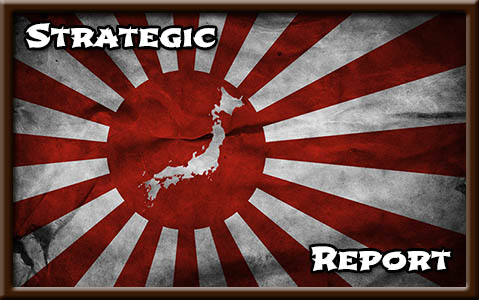|
aphid_licker posted:Are individual planes ever retired due to material fatigue or something? Between those production numbers and the fairly limited losses we're seeing it seems like the US is gonna be absolutely drowning in planes a couple months from now. We didn't even bother to ship most of the deployed aircraft home after the war; It was cheaper to just stack them up like firewood and drive bulldozers through the fields. This picture was taken in the post-war Philippines.  I have no concrete evidence, but I'd be absolutely astonished if there was an airframe in that pile with more than a two or three hundred hours on it. By modern standards, they're essentially brand new. Many warbird restorations today started with airframes that never left the continental US, and thus had much higher airframe times, yet the civilian service they see flying for pleasure and airshows is often still orders of magnitude more than an airframe could expect to see in actual WWII-period service. During the period, aircraft were seen as disposable, and were treated as such.
|
|
|
|

|
| # ? Jun 1, 2024 13:04 |
|
aphid_licker posted:Does someone know how it worked irl outside battle damage, ie just wear and tear? Were planes written off after a fixed x missions, or when they became annoying to maintain, or just when something too major (the engine or a spar, presumably) broke? It depends. If you could fix it quickly, you did. If you couldn't, you probably didn't. If you were on a carrier, a badly damaged plane meant pushing it overboard because it was just taking up space. If you're on a small island near the forward-edge-of-battle, it'd be a choice between trying to salvage something because you need every plane you can get, and not bothering with something that takes too long to fix. I also want to mention the mentality of viewing a plane (or a tank, etc.) as a consumable. We'd like to think that buying a car is a 5- to 10-year investment, but in war, it doesn't really matter if your engine is good for 150,000 km if you expect that it'll be destroyed in the first 10k or less. (and this also means that you don't need an engine that's good for 150,000 km)
|
|
|
|
aphid_licker posted:Does someone know how it worked irl outside battle damage, ie just wear and tear? Were planes written off after a fixed x missions, or when they became annoying to maintain, or just when something too major (the engine or a spar, presumably) broke? Most notably seen with the US, older planes were called "War Weary" and would be used in non-combat roles. This is mostly due to the overall wear and tear to the airframe itself thanks to potential High G maneuvers performed in combat, as well as damage, etc. The US would use WW bombers as formation planes, as has been seen many times with their colourful and expressive paint schemes.
|
|
|
|
Jobbo_Fett posted:Most notably seen with the US, older planes were called "War Weary" and would be used in non-combat roles. This is mostly due to the overall wear and tear to the airframe itself thanks to potential High G maneuvers performed in combat, as well as damage, etc. Sweet article with lots of pictures: The polka dot warriors 
|
|
|
|
Those spits took your zeroes apart. Which is about my experience from playing too much cartoon plane fighting (War Thunder).
|
|
|
|
Jobbo_Fett posted:Most notably seen with the US, older planes were called "War Weary" and would be used in non-combat roles. This is mostly due to the overall wear and tear to the airframe itself thanks to potential High G maneuvers performed in combat, as well as damage, etc. Do you know how they'd identify those? Apart from super obvious stuff like the whole airframe getting more creaky and rattly because stuff is slightly bent maybe
|
|
|
|
Eisenhower has a story in his memoirs of an officer being outraged by a proposed flanking maneuver that would have used up half the operational life expectancy of his halftracks. A proper attitude for peacetime training, he points out, but unimportant during actual combat.
|
|
|
|
aphid_licker posted:Do you know how they'd identify those? Apart from super obvious stuff like the whole airframe getting more creaky and rattly because stuff is slightly bent maybe Mechanic logs detail which plane(s) are out for how long and any special notes are written. Some planes had the airframe number painted somewhere on the plane, others would use the aircraft's code (like German | + < ). Others still might use the serial number stamped/etc on the inside of the frame. Engines would be logged individually iirc.
|
|
|
|
Epicurius posted:I've recommended it before, but I'll again recommend Eri Hotta's "Japan 1941: Countdown to Infamy", which traces the Japanese military and political thinking that led to Pearl Harbor,. As far as I can tell, though, a Japanese victory is Japan not going to war with the US and working out some sort of negotiated settlement with China that lets them claim victory and leave, if that's even possible by 1941. These could never have happened, because the environment on the ground at the time in Japan would not have allowed it. Some officers and officials, even high-ranking ones, may have recognized the benefits of ideas such as those, but they would literally have been assassinated if they'd pushed for them. This was heavily the fault of the IJA, which was absolutely packed with incredibly aggressive officers buying into their own bullshit, but there were a number in the IJN as well. With that said, there are a number of things Japan could have done differently that would have at least dragged the war out longer.
|
|
|
|
TildeATH posted:Has anyone ever described a way that the Japanese could have won? I just canít even conceive of one. And I donít mean with space alien tech but just a realistic even if highly improbable scenario. It just seems, every time this comes up, I canít ever understand how they even thought to go to war. It wouldn't have been easy but I think people tend to get obsessed with production numbers. Small countries have beaten larger countries before. What would japan have needed? Basically they would have needed to make the war so costly that the us populace would have rebelled and forced the government to sit down for a negotiated settlement. So a couple midways but reversed and a couple more tarawas at the least, probably they would have needed to get india to revolt as well. Ultimately the japanese were too successful and both pushed forward unnecessarily and failed to recognize what conditions led to success (a common effect with victory, you really only learn well with defeat). So with those two in mind they needed to keep their carriers concentrated which means no coral seas, and always engage under air cover which means no midways. The core idea they started the war under, which had been around since the 20s, of creating a perimeter and then slowly falling back using their superior position to trade favorably with the US, a sort of naval deep battle doctrine the soviets used, was a sound strategy. The problem is they completely abandoned it for midway because their was so much pressure to keep winning so we will never actually know if it would have done a much better job at fighting the US.
|
|
|
|
The best plan I can see for Japan would be seizing what they want without attacking the US. Pick off holdings of the European powers while theyíre busy with Germany. Hope the US is isolationist enough not to start a war over it. I donít know it would have worked, but I think it was a better bet than Pearl Harbor.
|
|
|
|
Japan needed Germany to win.
|
|
|
|
BurningStone posted:The best plan I can see for Japan would be seizing what they want without attacking the US. Pick off holdings of the European powers while theyíre busy with Germany. Hope the US is isolationist enough not to start a war over it. I donít know it would have worked, but I think it was a better bet than Pearl Harbor.
|
|
|
|
Jobbo_Fett posted:Mechanic logs detail which plane(s) are out for how long and any special notes are written. Very cool, thanks!
|
|
|
|
Yes, that would be a gamble: if the US did declare war, the Philippines would be a dangerous base. But if they stay out of the fighting, itís harmless. I canít see Japan actually taking the chance in real life.
|
|
|
|
darthbob88 posted:IIRC, they couldn't afford to have the US in the area at all, specifically in the Philippines, where they could have easily interdicted Japanese shipping back to the Home Islands. It's also important to remember that Japan and the USA were engaged in hostile politics with each other leading up to the war. My recollection (I don't have a source on hand) is that one of the many contributors to Pearl Harbor was the US trying to strangle the Japanese fuel supply via embago. My understanding is that while Pearl Harbor itself was a surprise, the idea that Japan and America were heading to war wasn't.
|
|
|
|
aphid_licker posted:Very cool, thanks! You see the same thing with tanks. The Germans had hull numbers, used to determine when it was built, called Fahrgestell numbers. Depending on the tank, and what year/month it is, you can look at specific locations to see it. For example, Panzer IV tanks might have it on the lower glacis plate until Jan 1945. After that it moved right above the driver's viewport. Not sure what Japan did, although I can't imagine they didn't keep track of them somehow. But like their aircraft, you'd log hours of use. Swap out the engine if need be, send anything to refit if need be (or total factory rework) and salvage what you can.
|
|
|
|
Epicurius posted:I've recommended it before, but I'll again recommend Eri Hotta's "Japan 1941: Countdown to Infamy", which traces the Japanese military and political thinking that led to Pearl Harbor,. As far as I can tell, though, a Japanese victory is Japan not going to war with the US and working out some sort of negotiated settlement with China that lets them claim victory and leave, if that's even possible by 1941. Its pretty clear from reading Japan: 1941 (thanks for the recommendation, thread!) that not even the Japanese military thought they could actually win the war they started against the US.
|
|
|
|
TildeATH posted:Has anyone ever described a way that the Japanese could have won? I just canít even conceive of one. And I donít mean with space alien tech but just a realistic even if highly improbable scenario. It just seems, every time this comes up, I canít ever understand how they even thought to go to war. Don't hit Pearl Harbor. The US had a raging hard-on for staying out of international wars - Japan could have done whatever the hell it wanted to whoever the hell it wanted provided the US could wring its hands in anguish wishing that it would all just stop and go away. The strategic objective of Japan was DEI oil and Chinese labor and resources, and the only people who gave a gently caress about DEI were too busy elsewhere to do more than protest-then-accept a Japanese invasion, and no-one gave a gently caress about China except the Chinese. Had Japan just kicked off WWII in the pacific but not hit Pearl it would have done nothing more than earn a diplomatic protest and some more sanctions (but everything that could be sanctioned was already being sanctioned, so that wouldn't have mattered). MrYenko posted:I have no concrete evidence, but I'd be absolutely astonished if there was an airframe in that pile with more than a two or three hundred hours on it. By modern standards, they're essentially brand new. Way less than that, and they're scrapped for a reason. Fighter airframes were often rated to 25 hours of combat sorties (eg Spitfire) and engines maybe 5 hours between major overhaul. Four engine Bomber airframes were rated to ~100-250 hours. Once the airframe hours are up you either do a D-check (which they didn't) or scrap it. The way the engineers got the performance they did from the technology available was by building right to the edge of the envelope - there was the absolute minimum structure possible for surviving the dynamic loading, and after 25/250 hours those airframes are quite simply dangerous to fly due to fatigue and creep. That's why restorations don't use combat aircraft, why they're so labor intensive to keep airworthy, and why they never fly to their wartime performance levels.
|
|
|
|
Captain Postal posted:Don't hit Pearl Harbor. The US had a raging hard-on for staying out of international wars - Japan could have done whatever the hell it wanted to whoever the hell it wanted provided the US could wring its hands in anguish wishing that it would all just stop and go away. The strategic objective of Japan was DEI oil and Chinese labor and resources, and the only people who gave a gently caress about DEI were too busy elsewhere to do more than protest-then-accept a Japanese invasion, and no-one gave a gently caress about China except the Chinese. Just a note here, but ignoring the Philippines in this kind of situation is going to incredibly hard to ignore for any major power inserted there, even if not gripped by raging militacy. This is one of the core reasons why historically the US does not get along with Cuba, and Russia does not get along with Turkey - Cuba theoretically can interdict travel out of the Mississippi delta and along the entire southern portion of the Intracoastal Waterway, and Turkey of course sits right atop the Bosphorus. That the US government was already being blatantly hostile towards Japanese intentions, regardless of the inclinations of the general public, and that the islands they were interested in were colonies of Western powers, who the public could be manipulated to empathize with far more than that mysterious aggressive Easterner, certainly wouldn't help matters. Remember, the US navy was already at war with German U-boats months before we actually went to war, so even without an actual declaration of war I wouldn't exactly bet on Roosevelt not finding some way to screw with supply lines. The real argument along this line comes down to whether or not Japan could have just gotten away with a surprise attack on the Philippines - ignoring Pearl - and not incited quite the same "war to the hilt" response. Hawaii, after all, was a fairly well-known place people would have been familiar with for various reasons, even aside from the US citizens there. On the other hand, there are plenty of people in the US today that have no idea what/where the Philippines are, bar possibly the name, let alone in 1941.
|
|
|
|
Japan needed resources from the US/DEI to keep thier war machine going (Rubber, oil) that they did nto have the capabity to produce in sufficient quantities from their own territories and industry. Which is in part what thier haphazard invasion of China was for. But at the point the US threatened Japan to evacuate their forces from China and if they didn't the US would cut off all exports and convince thier allies in the Pacific to do the same, from the Japanese perspective war was inevitable as they wouldn't remotely be able to get the resources for thier military or sustain it economically. And.. They -had- to take the Phillipines. Just look at a map and where their intended invasion targets were. Even if by some way the Japanese are not at war wtih the US, the Phillipines is stil lsmack dab in the middle of all the routes and puts a major crimp in their supply lanes. And it is almost guaranteed that the US will be a friendly non-belligerent (allowing allied task forces to use there for resupply, operate out of to a degree, etc)
|
|
|
|
   Munda is hit again.  We lose several planes.   Clean up operations continue.   At least Rabaul wasn't hit today! 
|
|
|
|
TildeATH posted:Has anyone ever described a way that the Japanese could have won? I just canít even conceive of one. And I donít mean with space alien tech but just a realistic even if highly improbable scenario. It just seems, every time this comes up, I canít ever understand how they even thought to go to war. Sure. Three important changes: 1) That massive oilfield under Saudi Arabia? Yeah, now itís under Japan. Cool. 2) Japanís starting industrial capacity, and all capacity from then forward, is multiplied by five. At a bare minimum. 3) Instead of the Pearl Harbour attack, Godzilla surfaces from beneath the waves and sinks not only the Pacific Fleet, but the entire island of Oahu. They could probably have done it then. Ironically, they still wouldnít match the USA in military potential, but the advantage of surprise would be big.
|
|
|
|
Obviously someone (not necessarily Grey, unless he really wants to!) should do a WITP LP with the Japan Ironman scenario so we get to see Glorious Nippon roll around with two Kido Butais (and two more in the pipeline), a dozen Yamatos, half the Kriegsmarine, a bunch of Panzer divisions, scads of Me-262s and this bad boy and see how the Allies like that.
|
|
|
|
I'm going to guess presumably if the AI is also given sufficient resources to actually prosecute the war effectively and maintain it's economy/production a slow grind of attrition warfare where the Allies mainly rely upon centralized strongholds as long as possible to bleed the Axis dry and engage in limited defensive naval actions in regions massively supported by land based air power (fortify Australia as much as possible, dig in and try to slow down the Axis in China but presume that it will be lost before sigifnicant forces can be sent). Buildup India as much as possible to hold it but presume that trnasferring forces to that front is going to be possible. Use as much submarines as you can deploy. Broadly, fortify India, Australia, and go for a grinding, attritional warfare in other places to slow down the Axis. Presume that China will be lost if only due to overwhelming force superiority but try and make it as slow as possible. Fortify Pearl Harbor to the max and get as much air power there as you can to make going to there a total death zone. At the point you're starting to produce more carriers in 1943 start engaging the IJN piecemeal where you can get localized force superiority and be willing to lose large chunks of carriers in exchanges. wait until you can afford to do this before engaging in massed battles. Once you've attrited the IJN by a dozen or so carriers with the presumpion that they'e got another 20 or so but you're relativley sure you can achieve localized force superiority for an extended period of time, start island hopping. Establish forward bases, and start advancing. Rather than take over everywhere, just take over enough places to maintain supply lines, a grinding advance forwards to secure airbases for strategic bombing and relatively secure lanes to them. Engage in defensive battles with overwhelming airpower to negate IJN carrier supremacy. Presuming you don't use nukes be ready for a long, LONG battle until you can start getting massed strategic bombers raids over the HOme Islands and sufficient force concentration to hold onto your airfields.
|
|
|
|
gradenko_2000 posted:Obviously someone (not necessarily Grey, unless he really wants to!) should do a WITP LP with the Japan Ironman scenario so we get to see Glorious Nippon roll around with two Kido Butais (and two more in the pipeline), a dozen Yamatos, half the Kriegsmarine, a bunch of Panzer divisions, scads of Me-262s and this bad boy and see how the Allies like that. Last time this scenario came up I found a lot of crazy ways to pile on the advantages for Japan, most of them relying on other Axis ships showing up. From the Germans throw in the Tirpitz and have the first two aircraft carriers of the Graf Zeppelin-class be completed and sent to the Pacific. From the Italians send as many of their battleships and heavy cruisers as possible as well the one battleship and two carriers that they never finished. Hell, maybe even whatever was left of the Vichy fleet after the Attack on Mers-el-Kťbir. Basically an insane Axis superfleet that may have a chance of challenging the Allies at least going into 1944. zetamind2000 fucked around with this message at 09:13 on Jan 18, 2018 |
|
|
|
You've also described how the Allies win in a standard game of WITP - the balance is always how much "empty space" you leave before making your final stand, and where you decide to make your final stand (which is hopefully where the KB isn't). Too close and the Japanese can still hit you with land-based aircraft. Too far and you give up too many free VPs for the Japanese to snap up. Ironman just makes it so that the Japanese can hit a lot more places at once, can stretch a lot farther before they hit the limits of their tether, can make more mistakes/take more losses before Allied production becomes overwhelming, and has a better shot at beating the Allies even in places where they fortify.
|
|
|
|
RZApublican posted:Last time this scenario came up I found a lot of crazy ways to pile on the advantages for Japan, most of them relying on other Axis ships showing up. From the Germans throw in the Tirpitz and have the first two aircraft carriers of the Graf Zeppelin-class be completed and sent to the Pacific. From the Italians send as many of their battleships and heavy cruisers as possible as well the one battleship and two carriers that they never finished. Hell, maybe even whatever was left of the Vichy fleet after the Attack on Mers-el-Kťbir. Still confused as to how the Regina Marina would be an asset in the Pacific. I suppose thier sea commandos would be highly useful, but why take the rest of the Italian navy over? I think the best asset you'd get from the rest of the Axis wouldn't be thier surface units but rather thier U-Boats. Just presume the Germans send 60-70 of thier better teched subs with veteran crews over and you get a few replacements each month and enough for wolfpack tactics. Wouldn't the rest of the Axis carriers be really bad for fleet maneuvers though? Given low to moderate speed, small plane counts, and even poorer planes suited for carrier operations? They might be useful for ASW, but they're basically CVL's with very poor strike groups. Suppose also you could handwave sending of not only technology but also officers and justify it as tweaking the AI as much as the game lets you when it comes to land forces. Maybe if you can do things like improve doctrine within the system? Probably the biggest thing the Germasn can offer (other than better planes and submarines) is probably land doctrines to help the Japanese conquer China all the more quickly and engineers to boost resource production, and give the IJN enough subs and instruction to do proper commerce raiding. I'm not sure having a lot of the rest of the Axis navies in the Pacific are useful. Sure, they can be damage magnets but they take fuel which could be better spent on other things and port infrastructure.
|
|
|
|
wedgekree posted:Still confused as to how the Regina Marina would be an asset in the Pacific. I suppose thier sea commandos would be highly useful, but why take the rest of the Italian navy over? I think the best asset you'd get from the rest of the Axis wouldn't be thier surface units but rather thier U-Boats. Just presume the Germans send 60-70 of thier better teched subs with veteran crews over and you get a few replacements each month and enough for wolfpack tactics. I can't really counter any of that, the Italians would at best be ablative armor for the Kido Butai  A lot of this would require the Axis to have taken the Suez Canal because I can't see them getting even half of what the scenario has over to the Pacific. Actually, having the canal fall to the Axis and cutting off the convoy routes from the Middle East would balance the game a bit more toward the Japanese, if only for the effects that it would have on trying to reinforce India.
|
|
|
|
RZApublican posted:I can't really counter any of that, the Italians would at best be ablative armor for the Kido Butai Well, if you're going for sort of balance rather than ferrying all those Tank armies to the Pacific where they can be used in.. China, why not start them in Persia making a flanking attack on India? That puts you in a position where the extra ground forces can be used to better ability (presumin gthe AI can handle a multi-pronged attack into India from Persia) that threatens pretty badly the Allies' ability to have a second front. It risks the total loss of India and with it ability to reinforce China and is a brutal and likely total KO to the Royal Navy and any British forces that are anywhere else than Australia. And makes the Allied game that much harder as they can't just turtle up on both sides and defend chokepoints, they either have to spread themselves out early to defend against the Axis hitting into India which leads to likely the total collapse of Britain's ability to contribute units, and gives the Axis a massive amount of VP's and extra resources.. And puts those extra Axis land forces where they're actually useful. And makes taking China easier as the Allies can't send reinforcements and you can slowly pinch it off in chunks without being stuck entirel invading through the coast. Or if you want extra nastiness withdraw a lot of the Soviet garrison forces from Siberia under the handwave of 'if the Axis have taken the Suez, they're doing better in the USSR so the USSR has put their forces more to the west as opposed to the forzen wastelands'. That's a ready incentive for Japan to try and take as much of Siberia as they can for resources and points. Which, thanks to them havin a lot more force pools and logistics is viable. That makes the Allied fight alot harder as they can't simply just turtle up and wait a few years to outproduce as it puts them in a spot where they immediately have to give up lots of ground, try and defend everywhere, try and defend where the enemy has advantage, or on thier terms. As well as dividing forces up - you can't send a big chunk of the USN to India, you'll have to rely on the British assets there. if that -wroks- within the game's UI and AI, it means that the Allied player -has- to battle on the enemy's turf and can't completely avoid giving combat and purely working on massive fortresses. Plus having the Regina Marina and German Navy focused off India with thier own forces supplemented by what the IJN sends in makes for a good reason why the other Axis navies are there -intended to help neutralize the British forces around India and support the Axis advance through Persia. Menas the Royal Navy has to prioritize how to defend India rather than just going to Australia. Sorry for extended ramblings/musings. Figured if the Japanese are going to get a brutal level boost it might as well be soemthing to force the Allied player to have to make nasty decisions early on..
|
|
|
|
Captain Postal posted:Don't hit Pearl Harbor. The US had a raging hard-on for staying out of international wars - Japan could have done whatever the hell it wanted to whoever the hell it wanted provided the US could wring its hands in anguish wishing that it would all just stop and go away. The strategic objective of Japan was DEI oil and Chinese labor and resources, and the only people who gave a gently caress about DEI were too busy elsewhere to do more than protest-then-accept a Japanese invasion, and no-one gave a gently caress about China except the Chinese. I 100 percent disagree with this. Parts of the republican section of the government were isolationist but the democrats were raging interventionists and FDR was personally part of a faction within that had a hard on for China and would literally have used any pretext to go to war eventually just as Wilson had with WW1. There is no history where the US stays out of WW2 with FDR in the white house, just timelines where it takes longer.
|
|
|
|
dtkozl posted:I 100 percent disagree with this. Parts of the republican section of the government were isolationist but the democrats were raging interventionists and FDR was personally part of a faction within that had a hard on for China and would literally have used any pretext to go to war eventually just as Wilson had with WW1. There is no history where the US stays out of WW2 with FDR in the white house, just timelines where it takes longer. the US joining WW2 in the Pacific is almost guaranteed. Much like how Japanese militarism makes war almost guaranteed. An attack on the Phillipines is all but guaranteed due to geography. It's too big a threat to supply lines and even if somehow Japan is not at warw tih the US of course the US is going to let anyone at war with the Japanese 'operate' out of there to a degree. Also I'm no tsure yo ucan remotely say that the US wasn't completley right by any means to want to help the Chinese against the Japanese. Have you -looked- at what the Sino-Japanese War involved Japan doing in China and can't tell me within anyone's power it wasn't worth it to try and stop?
|
|
|
|
Basically what would let Japan win in the Pacific is some insane ahistorical thing like Charles Lindbergh winning the 1940 presidential election.
|
|
|
|
For the Japanese to avoid military defeat at the hands of the US in WWII, both Japan and the US would have had to make different decisions well before 1940. The US was on the way towards granting Philippine independence from the mid-1930s onwards, but if the timeline had been moved up by the success of the 1919 independence mission to Washington and the Philippines had been independent since the early 1920s, it's very likely that the US would still have military bases there but nothing like what they had in real life. That would have made the US much less of a threat to Imperial Japan, and there would be less concern about "Fortress Philippines" cutting off supply routes. Of course, the Japanese would have needed some type of event or events to reduce the aggressiveness of their military, and I don't know Showa era history well enough to know what could have done that.
|
|
|
|
Again I disagree. Imagine the US pulling a stalingrad in 42, losing over a million men. While they probably would have fought on there is no guarantee with something that unknowable.
|
|
|
|
wedgekree posted:Well, if you're going for sort of balance rather than ferrying all those Tank armies to the Pacific where they can be used in.. China, why not start them in Persia making a flanking attack on India? That puts you in a position where the extra ground forces can be used to better ability (presumin gthe AI can handle a multi-pronged attack into India from Persia) that threatens pretty badly the Allies' ability to have a second front. It risks the total loss of India and with it ability to reinforce China and is a brutal and likely total KO to the Royal Navy and any British forces that are anywhere else than Australia. The extended ramblings are what make this thread good  Those are a lot of really good ideas, actually, and would go a long way toward making the game genuinely different. Both sides having to make difficult decisions at the start that will affect pretty much the rest of the game is a lot more interesting than just giving Japan a boost to push back their annihilation by a few months. The possibility of completely losing India after having lost the Suez in addition to whatever else the player can accomplish also makes a Japanese victory in the game seem like something that might make some level of historical sense.
|
|
|
|
The most amusing suggestion I've ever heard is for Japan to forgo Pearl Harbor and instead slam everything into Russia hard enough to pull units from the West so that Germany can roll over Moscow. Then with Russia under Axis occupation Japan has plenty of fuel. If the US never intervenes maybe they even help Germany take on the UK. 
|
|
|
|
vyelkin posted:Basically what would let Japan win in the Pacific is some insane ahistorical thing like Charles Lindbergh winning the 1940 presidential election. Now that's an interesting historical what-if.
|
|
|
|
The thing with considering alternate history is that you either accept the notion that history is inevitable - that all of the choices people make are entirely dependent on the factors influencing those choices, e.g., there's no free will - or, you have to accept that since we have never ever had any opportunity to actually test what happens when you go back in time and change someone's decisions, we cannot actually model to what degree an alternate history can be, uh, altered. You can also toy with altering natural/uncontrollable events, like what if Krakatoa never blew up, or what if the russian winter that halted the nazis had been unusually mild, etc. But the point I'm making is, I'm always frustrated a bit when people argue about what would or wouldn't be "inevitable" once you open up the option of an alternate history. We simply don't know, and will never know, to what degree American sentiment "could have been" different than it was. It's easy to say in hindsight that no, the American public could never have been so demoralized by what Japan was capable of doing that they'd agree to giving up the Philippines or something, but we cannot actually know that. If you've read any history at all, or even just follow current events, one thing that should strike you over and over again is how weird things can be. How dramatically a single election, or a single assassination, or a single traumatic national event, can pivot the direction that a country is going in. How many times throughout history a single inspirational leader or a single invention or a single battle can have far-reaching and enormous impact. How many times everyone was quite sure of something, only to be proven wildly wrong within a year or two. To my mind, once you've opened the door to changing any of the historical parameters of a historical re-enactment, then everything is on the table. You're writing fiction! You can make up whatever events you want, and however implausible they seem, just look for the most implausible thing that has happened in real life and compare. It's still useful of course to discuss how your changes affect the scenario, but if you're making changes, arguments like "that's too big of a change" don't make sense. You can have the US get involved in a war with Canada right when WWII starts, you can have India take advantage of the war to win independence and decide to join the Axis, you can have the Philippines decide they want to be part of the Japanese Co-Prosperity Sphere, you can have Japan discover a huge oil reserve in Hokkaido. Whatever you like! You can change the nature of Japanese generalship and interservice politics, or you can invent a charismatic and prescient leader who forces them to cooperate better. You can give the Japanese military a technological breakthrough that lets them have jet-powered aircraft in 1941. You can have the Germans anticipate their alliance with Japan 10 years in advance and engage in a technology exchange program, so the Japanese enter the war with a submarine fleet that is even better than what the Germans had in real life. You can have the suez canal never have been dug, due to political failures or a war in Panama or maybe Teddy got assassinated. You can have the Bolshevic revolution result in the breakup of Russia and turn the whole of northern Asia into a balkanized collection of minor powers. There's no real limitations here. You can invent any scenario you want, up to and including alien intervention, and it'll be plausible enough to make a video game about it. Right?
|
|
|
|

|
| # ? Jun 1, 2024 13:04 |
|
So ive dumped all the Singapore reinforcements and aussies I toBurma. Iím sure I can totally hold Rangoon.
|
|
|
































